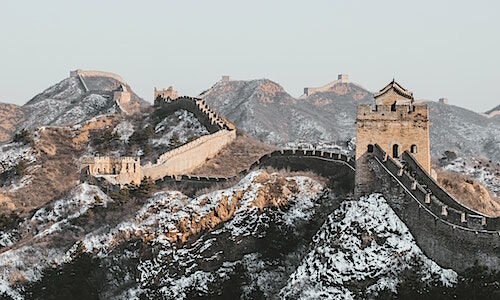Belt and Road Financing Plunges
China’s Belt and Road project is feeling the coronavirus headwinds with deal value plunging 64 percent year-on-year in the first quarter of 2020, according to Refinitiv data.
The $137.4 billion was sourced from 184 projects – a 16 percent drop compared to last year, according to the fourth edition of Refinitiv’s report on the Belt and Road Initiative (BRI).
Still, the 3,164 total BRI projects and deals recorded by Refinitiv surpassed the $4 trillion mark for the first time in the quarter. Russia is the biggest beneficiary of BRI ($296 billion from 126 projects) followed by Saudi Arabia ($185 billion from 111 projects) and Malaysia ($146 billion from 57 projects).
«Pandemic Crashes BRI Party»
According to Refinitiv comments under a subsection entitled «Pandemic Crashes BRI Party», there is little to celebrate apart from the total deal value milestone.
«The $4 trillion milestone was a bright spot in an otherwise subdued environment, as China emerged as the epicenter of the Novel Coronavirus (COVID-19) that has swept across the world,» the report said.
In addition to a domestic slowdown – the International Monetary Fund (IMF) forecasts 1.2 percent growth for China in 2020 – some of the largest BRI participants in the Middle East and South Asia are suffering from even greater slowdowns and have «little appetite to pursue projects as their economies remain in stasis».
Debt Distress
And even before the pandemic, many emerging economies were already suffering from high debt distress with the Center for Global Development naming 23 BRI countries including, most urgently, Djibouti, Mongolia, Kyrgyzstan, Laos, the Maldives, Pakistan and Montenegro.
The IMF had already approved $100 billion to emerging market and developing countries that are facing urgent financing needs. Debt relief is also being sought after through other multilateral organizations like the «Paris Club» or sovereign lenders like China through moratoriums or some write-offs.
«Soft Power»
According to Refinitiv, Beijing could fare better in terms of its «soft power» by providing relief rather than focusing on the pure economics of the current crisis.
«By demonstrating flexibility – as it did with Malaysia last year when it renegotiated projects on better terms for the South East Asian state – Beijing will be able to garner goodwill and further its ‘soft power’ as a benefactor rather than a pure lender,» the report said.
«That could pave the way for the next wave of BRI projects that will be required to connect Eurasia to Africa and South East Asia.»



























